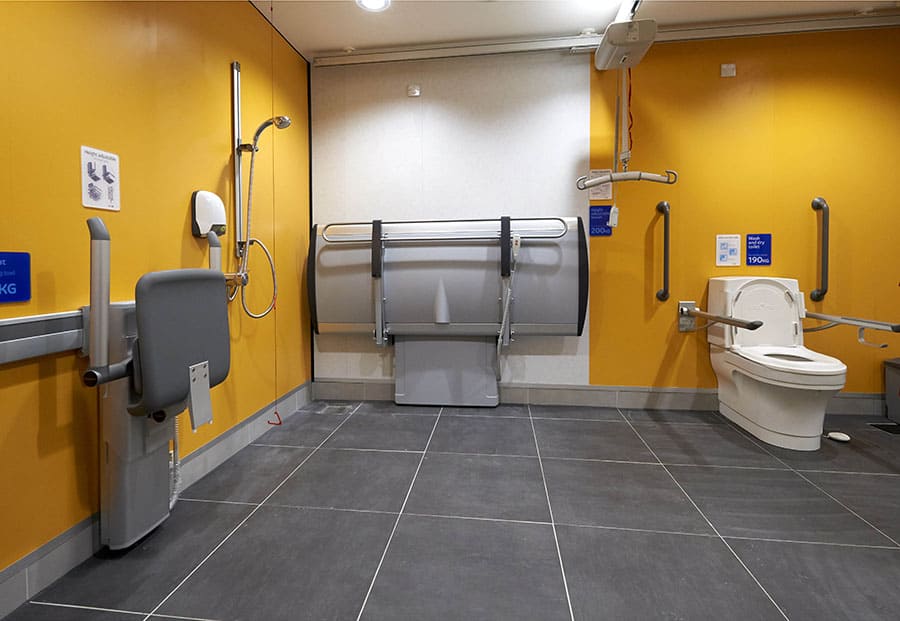Changing Places toilets for severely disabled people to be compulsory in new public buildings

The UK Government has announced that Changing Places toilets for disabled people will become mandatory in new public buildings, which is set to help more than 250,000 severely disabled people across England.
Changing Places toilets are larger accessible toilets for disabled people, with specialist equipment such as hoists, curtains, adult-sized changing benches, and space for wheelchair users and carers.
The new building rules will require thousands of large (12m2) and well-equipped accessible toilet facilities to be designed and built into new public buildings, from next year. Shopping centres, supermarkets, cinemas, stadia and arts venues are a handful of the building that will be required to include at least one Changing Places toilet.
The government estimates it will add the toilets to more than 150 new buildings a year.
In addition to this major change to building rules, the government has confirmed a new £30 million fund will open in the next few months to install Changing Places in existing buildings.
Building Accessibility Minister Lord Greenhalgh said: “For too long, the lack of Changing Places toilets has meant that severely disabled people have faced severe difficulties in attending public places.
“Changing Places toilets give disabled people and their carers the space and equipment they need to have the confidence to leave their homes and go out.
“We are making the installation of these toilets compulsory in hundreds of new public buildings in years to come to help bring major, life enhancing freedoms to the more than 250,000 people who need them.”
In the absence of Changing Places facilities, disabled people and/or carers face:
- limiting what they drink to avoid needing the toilet when they are out – risking dehydration and urinary tract infections
- sitting in soiled clothing or dirty nappies until a suitable toilet is found or they return home
- having to change a loved one on a dirty toilet floor
- manually lifting someone out of their wheelchair – risking safety
- reducing their time out of the house – restricting their social lives
The new building rules follows a £30 million investment, outlined in the UK Government’s Budget in March 2020, in Changing Places facilities to help disabled people get out and about without worrying that there is a suitable toilet to meet their needs.
Furthermore, to help make NHS hospitals more accessible for disabled people, at the beginning of the year, the UK Government also allocated £500,000 to NHS Trusts to build more Changing Places toilets.
Minister for Care, Helen Whately said: “Dignity and independence is something many of us take for granted but can be a daily challenge of people with severe disabilities, especially when there is a lack of access to adequate toilet and changing facilities. All public spaces should cater for people with disabilities so they don’t have to suffer discomfort, embarrassment, or even injury without access to a Changing Place.
“Compulsory Changing Places in new public buildings is a major step in reducing the health inequalities faced by so many and will mean that future generations can live with independence, without having to worry about something as simple as basic amenities.”
The Department for Transport, in partnership with Muscular Dystrophy UK, has announced £1.27 million to install 37 more changing places at service stations across England.
These new facilities will give people with complex needs and their carers the confidence and freedom to make more journeys by road as coronavirus restrictions ease.

